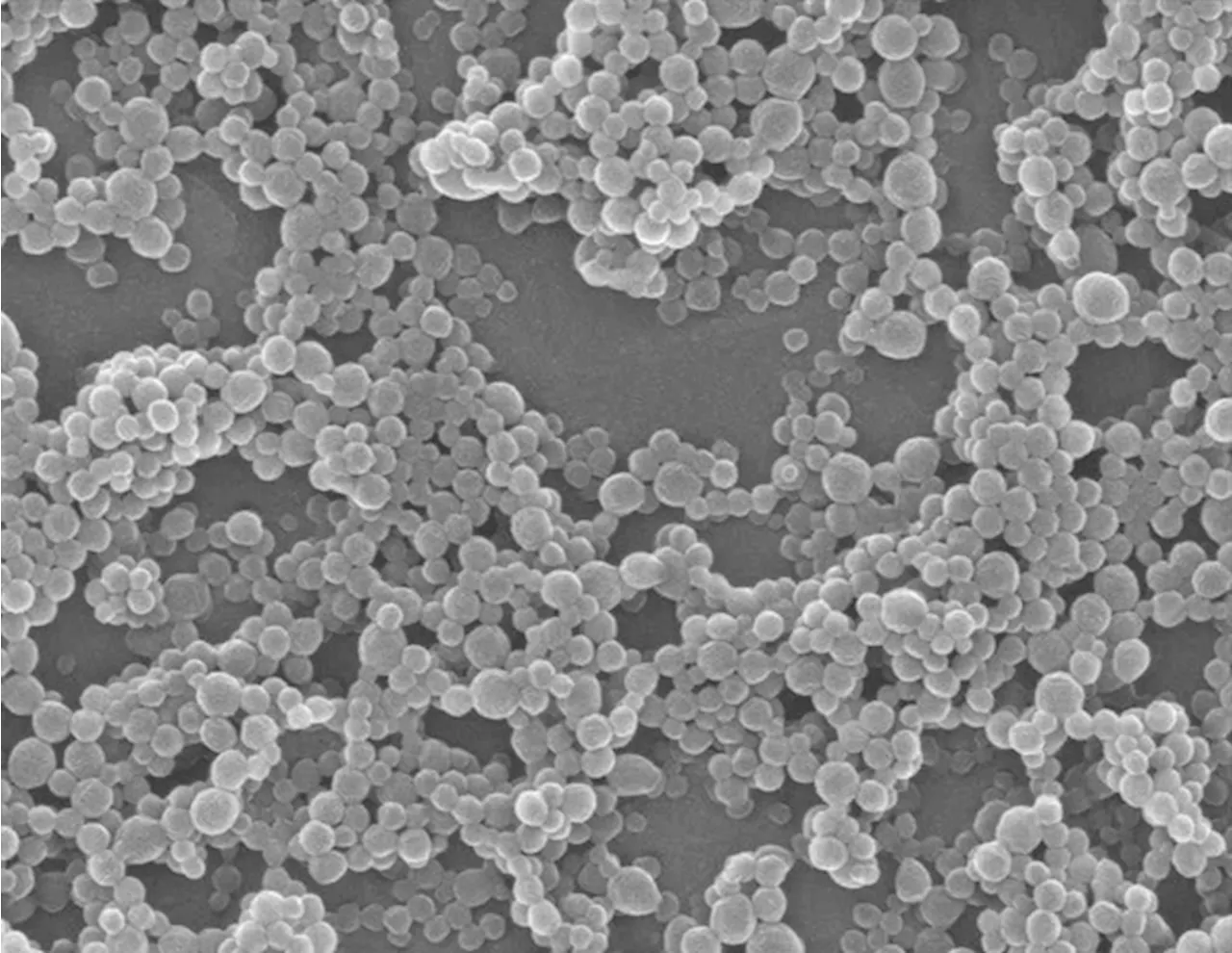A new way to neutralize the coronavirus and other membrane-surrounded viruses has been discovered by researchers from the Swedish University of Agricultural Sciences and the University of Tartu.
Swedish University of Agricultural Sciences Jan 31 2025 Certain mineral nanoparticles were found to damage the membrane of the virus, making it less able to enter human cells. The mode of action that is demonstrated has not been discussed in previous research. The technology works at room temperature and also in the dark, offering a range of benefits for disinfecting surfaces, air and water.
The recent COVID-19 pandemic has led to an intense search for new types of treatments and disinfection methods that can be used in outbreaks of viral diseases of this type. One area that has received much attention is nanotechnology, as tiny particles of certain metals and metal oxides have been shown to have anti-viral properties.
We now understand what properties such particles need to have to be effective against the coronavirus, and this is a very important step forward." Coronaviruses belong to a type of virus that has an outer envelope, a lipid membrane. It turned out that nanoparticles of sand minerals such as titanium oxide bind very strongly to phospholipids in this membrane. This damages the membrane and leads to the release of viral genetic material, thereby making the virus less able to infect cells.
Disinfection Nanoparticles Technology Membrane Research Virus
United Kingdom Latest News, United Kingdom Headlines
Similar News:You can also read news stories similar to this one that we have collected from other news sources.
 Two Women Make History as Joint Deans at Royal Agricultural UniversityDr Cassie Newland and Dr Karen Rial Lovera become the first joint deans and the first female deans of agriculture in the university's history.
Two Women Make History as Joint Deans at Royal Agricultural UniversityDr Cassie Newland and Dr Karen Rial Lovera become the first joint deans and the first female deans of agriculture in the university's history.
Read more »
 Korea University and Yale University Advance Healthcare Through AI and Data InnovationsKorea University College of Medicine hosted a forum focused on the advancements in healthcare through AI and data innovations in clinical informatics and natural language processing. The forum, part of Korea University's 120th-anniversary celebration, featured experts from Yale University and Korea University, sharing research trends and fostering academic exchange.
Korea University and Yale University Advance Healthcare Through AI and Data InnovationsKorea University College of Medicine hosted a forum focused on the advancements in healthcare through AI and data innovations in clinical informatics and natural language processing. The forum, part of Korea University's 120th-anniversary celebration, featured experts from Yale University and Korea University, sharing research trends and fostering academic exchange.
Read more »
 'We are Telford and Shropshire's university' - Harper Adams reaffirms commitment as Wolverhampton University abandons TelfordThe county's leading Harper Adams University has reaffirmed its commitment to Shropshire.
'We are Telford and Shropshire's university' - Harper Adams reaffirms commitment as Wolverhampton University abandons TelfordThe county's leading Harper Adams University has reaffirmed its commitment to Shropshire.
Read more »
 Seven new homes planned for 'underutilised agricultural land' in Market DraytonFive bungalows and a pair of semi-detached houses are planned for a triangular parcel of land by the A53 in Market Drayton.
Seven new homes planned for 'underutilised agricultural land' in Market DraytonFive bungalows and a pair of semi-detached houses are planned for a triangular parcel of land by the A53 in Market Drayton.
Read more »
 New Governor, New Challenges for New Hampshire RepublicansNew Hampshire's incoming governor faces a host of pressing issues, including housing affordability, homelessness, and a challenging budget cycle. Simultaneously, the state GOP is undergoing a leadership change, raising questions about the party's direction and future prospects.
New Governor, New Challenges for New Hampshire RepublicansNew Hampshire's incoming governor faces a host of pressing issues, including housing affordability, homelessness, and a challenging budget cycle. Simultaneously, the state GOP is undergoing a leadership change, raising questions about the party's direction and future prospects.
Read more »
 University of Exeter Launches New Funding Call to Combat Fungal Antimicrobial ResistanceThe University of Exeter's FAILSAFE project, focused on tackling antifungal drug resistance, has announced a new call for applications. The project aims to promote global innovations to address the growing threat of fungal infections in humans, plants, and animals. FAILSAFE has already awarded over £1.7 million in grants to researchers worldwide.
University of Exeter Launches New Funding Call to Combat Fungal Antimicrobial ResistanceThe University of Exeter's FAILSAFE project, focused on tackling antifungal drug resistance, has announced a new call for applications. The project aims to promote global innovations to address the growing threat of fungal infections in humans, plants, and animals. FAILSAFE has already awarded over £1.7 million in grants to researchers worldwide.
Read more »
